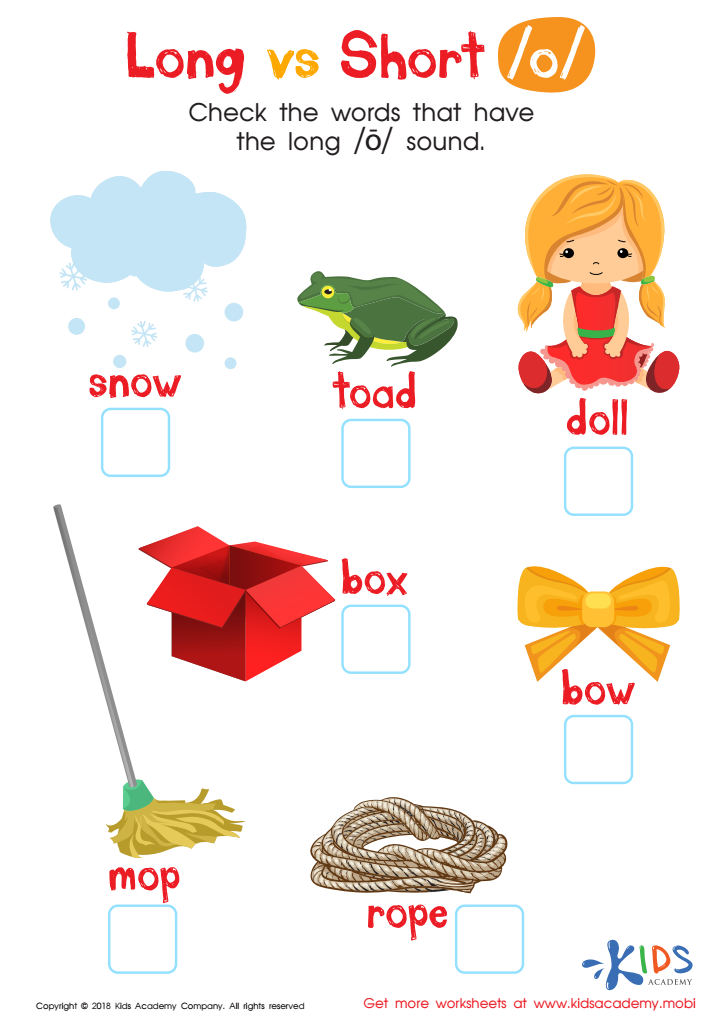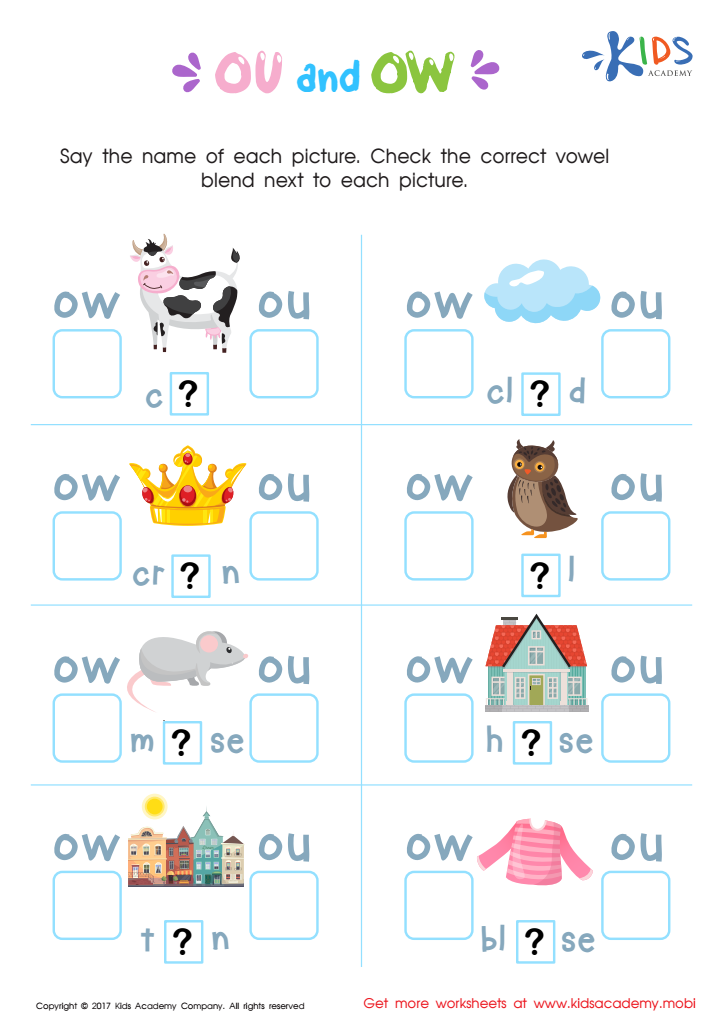Sound differentiation Normal Phonics Worksheets
3 filtered results
-
From - To
Enhance phonics mastery with our "Sound Differentiation Normal Phonics Worksheets" designed for early learners. These engaging worksheets help children distinguish between similar sounds, reinforcing their understanding of phonetic principles. Perfect for classroom or home use, each activity promotes auditory discrimination and boosts reading readiness. With a variety of interactive tasks, students can practice identifying, matching, and differentiating sounds, ensuring a solid foundation in early literacy skills. Our fun and educational worksheets make learning enjoyable and effective, preparing young minds for successful reading and writing experiences.


Long vs Short O Reading Worksheet


Long and Short Vowel Sentences: Assessment Worksheet


OU and OW Words Worksheet
Parents and teachers should care about sound differentiation in normal phonics because it's fundamental for a child's reading development. Sound differentiation is the ability to distinguish between different phonetic sounds, a crucial skill in learning to decode words. Without this skill, children may struggle to understand the relationship between letters and sounds, making it difficult for them to read and spell correctly.
For example, if a child cannot differentiate between the sounds of "b" and "d," they might confuse words like "bat" and "dad," leading to misunderstandings and frustration. Mastery of sound differentiation supports phonemic awareness, or the understanding that words are made up of individual sounds, which is a critical predictor of reading success.
Moreover, sound differentiation exercises engage auditory processing skills, sharpening the ability to hear, identify, and manipulate sounds. These skills build a solid foundation for spelling, reading fluency, and comprehension. Early interventions emphasizing sound differentiation can help prevent future reading difficulties and boost a child's confidence and self-esteem in their academic journey.
Therefore, parents and teachers who prioritize sound differentiation are equipping children with the essential tools they need to become proficient readers, laying the groundwork for lifelong learning and academic success.
 Assign to My Students
Assign to My Students















